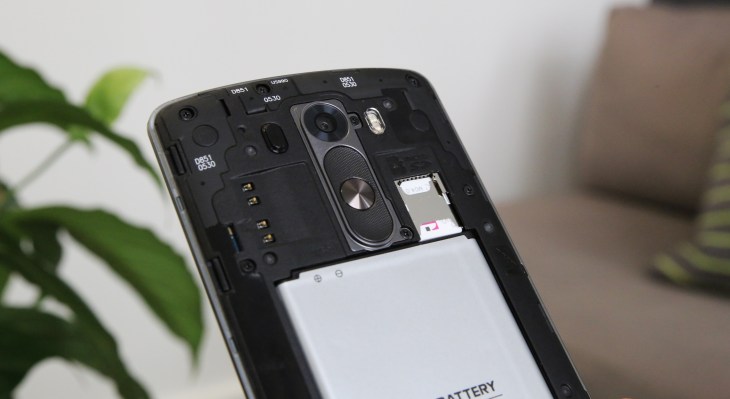Battery life remains the fly in the ointment of consumer smartphone satisfaction. Not to mention all the other devices we’re being encouraged to strap on our person or stick in our bags as computing shifts from fixed locations to something that’s near ubiquitous and (increasingly) personal. So it follows that companies which can even incrementally improve battery performance are likely to find their tech in demand.
To wit: Qnovo, a Newark, California-based firm that’s been developing battery charging enhancement technology since 2010 — and is today announcing an $8.6 million Series B funding round, with Intel Capital joining as a strategic investor, alongside existing investors RockPort Capital, US Venture Partners and Blue Run Ventures.
Its adaptive charging tech — which apparently speeds charging times without shortening battery lifespan — has not yet been commercially deployed but it says the new financing will be used to support the launch of “multiple smartphones” using its tech next year. It’s also planning to expand application to other devices, such as laptops and wearables, although smartphones remain its initial focus.
How does its battery enhancing technology work? It’s a layer of software that analyzes how a lithium-ion battery is charging and adapts current and voltage in real-time to optimize the process. (Which sounds much like the approach of TC Disrupt NYC 2015 alum, Nucleus Scientific, which launched on stage at our startup battlefield competition back in May.)
“Current charging of batteries in place for a century is a one way process (CCCV) that is blind to the chemical reactions inside the battery that cause degradation. Through the controlled introduction of charge and subsequent measurement of response, Qnovo is able to “see” degradation mechanism signatures and adjust charging current and voltage in real-time to minimize cell damage while simultaneously minimizing charge time,” says Qnovo Nadim Maluf, co-founder and CEO.
“From extensive measurement over four years, we see from two to eight times longer cycle life as compared to CCCV. With longer cycle life, the battery can be charged faster and still last for two years.”
Maluf claims there are multiple advantages to using its adaptive battery charging tech. “The best smartphones today only offer two of the four key battery performance attributes: capacity (use time), fast charging, battery lifetime, and thin and light. Apple iPhone 6 is thin and light with good lifetime but sacrifices capacity and charges slowly. Samsung Galaxy S6 is thin and light but reduced capacity from the S5 in order to offer fast charging. With Qnovo technology, smartphone OEMs can offer excellent use time (3Ah+ capacity), fast charging (1 day use with 20 minute fast charge), two year lifetime (800 cycles) in a thin form factor (7mm or less thickness) — simultaneously,” he tells TechCrunch.
“The technology is broadly applicable to applications where longer cycle life or faster charging is beneficial. It works with standard lithium-ion batteries and requires no changes, so it can be quickly deployed to production with no added cost to battery manufacturing. As software, it uses available compute resources and does not add additional hardware cost. The benefits vs standard charging increase with faster charging and higher energy density cells,” he adds.
All of which sounds rather too good to be true, which is probably why Maluf is so pleased to snag Intel as an investor. “We are very pleased with the addition of Intel as a strategic investor. We see this as a validation of our technology as well as the importance of improving battery performance in mobile devices,” he notes.
If Qnovo can get its lithium-ion improvement tech to market next year it’s likely to beat off more ambitious approaches to boosting battery performance — such as Israeli startup StoreDot which has raised some $76 million in funding since 2012, and has been demoing prototypes of a faster charging battery since last year (but has yet to bring them to market in phones).
StoreDot faces an arguably bigger challenge in getting its battery boosting tech to market given the batteries themselves involve new technology (it’s using bio-organic nano-crystals, rather than existing lithium-ion cells). Last October the company was suggesting 2017 for a commercial deployment of its tech. It’s since expanded its focus to building very fast charging batteries for electric cars, so it’s arguably now less focused on the smartphone segment.
Others playing in the battery enhancement space include Sakti3, which is developing a solid state battery tech that’s purportedly higher density than lithium-ion cells; and Seeo, which is working to shrink cell size without compromising capacity via lithium-polymer batteries. Stanford scientists have also been probing the potential of aluminum-ion for boosting battery performance.
There’s certainly no shortage of ambition to improve battery performance. Who can actually deliver those much-needed enhancements remains to be seen — leaving consumers to lug around a spare battery pack in the meanwhile.
